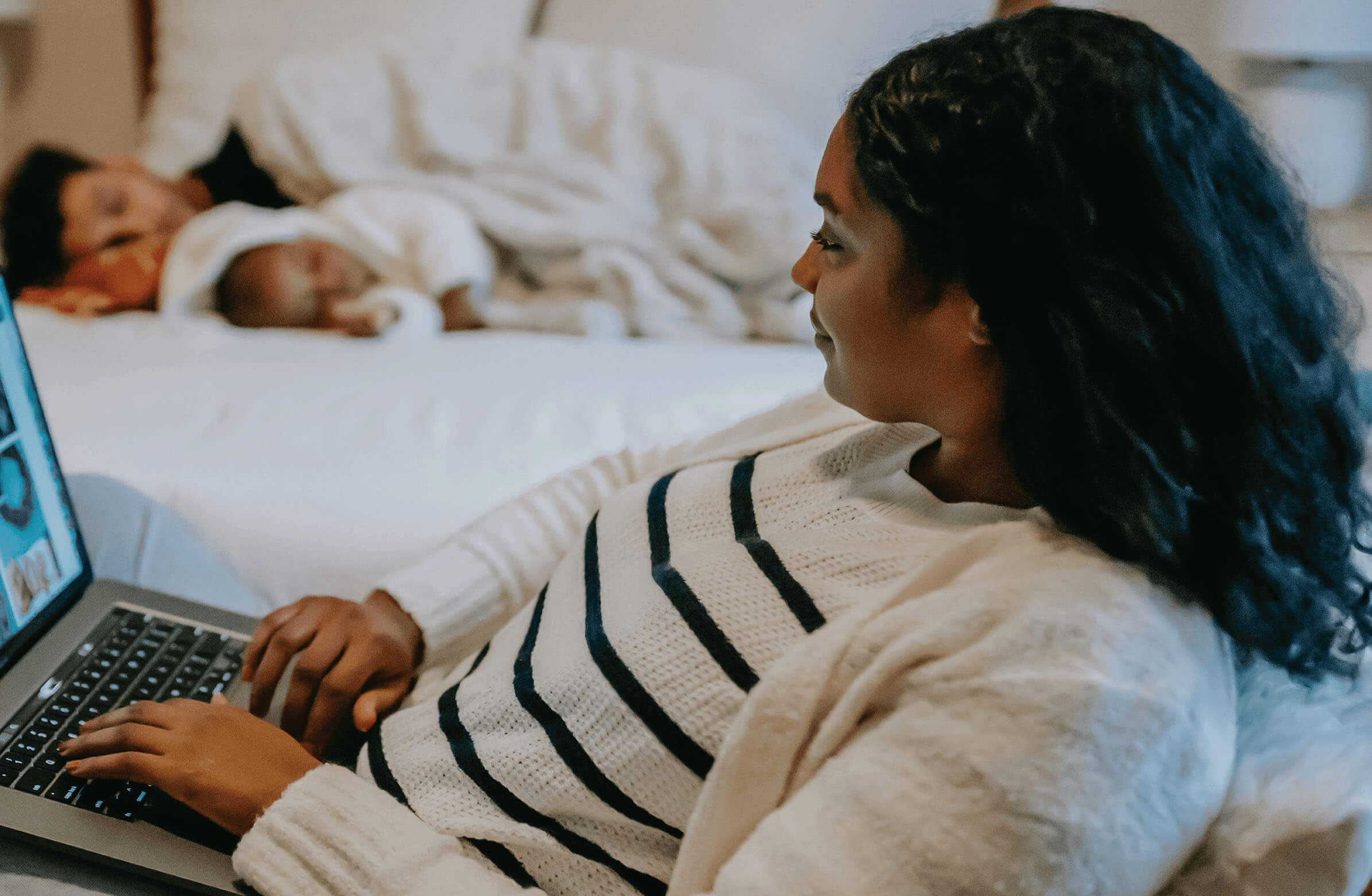Combatting insomnia: 6 tips for a better night’s sleep
4-6 minute read.
Overall well-being is influenced by a good night’s sleep. Try incorporating some of these tips into your daily routine to help create healthier sleep habits

Understanding Insomnia
We’ve all had restless nights where we get into bed, close our eyes, and no matter how long we lie there, we just can’t fall asleep. For others, the challenge can be staying asleep meaning lying wide awake with a busy mind in the early hours of the morning and left feeling less than refreshed the next morning.
And when you’ve had a few consecutive nights of rough sleep, the anxiety of falling asleep at the right time or getting enough sleep can start to set in and compound the problem.
Trouble sleeping over a longer period of time is called insomnia, which sounds like a scary word, but it’s common enough to affect one in three people in the UK according to NHS estimates. Insomnia is categorised as a sleep disorder closely tied to mental health with many influencing factors that differ from person to person.
Insomnia is more common among those suffering from anxiety disorders and depression, as well as those with physical ailments that can impact sleep. If you’re worried that your problems stem from anxiety or depression, it could be a good idea to talk to a therapist or seek other forms of professional help.
But for anyone suffering with sleep issues, there are factors within our control and things we can do to make falling asleep and staying asleep just that little bit easier. If you’re having restless nights, it could be worth trying some of the suggestions below.
It’s important to acknowledge that everyone is different, and what works for one person might not work for another. I’ve compiled this list not with the intent for you to follow every single step, but for you to find the combination of tips that works for you.

1. Set a routine
Many of our body’s processes are dictated by something called the circadian rhythm. The circadian rhythm is how our body is linked to natural environmental cycles like the sun rising and setting and is responsible for us feeling tired once the sun has set, for example. The circadian rhythm is a 24-hour cycle and thus our bodies can function best when we adhere to a set 24-hour routine. Part of this routine means going to sleep and waking up at around the same time each day. It doesn’t have to be the exact same time, but if you set a routine, you could find this eventually leads to better sleep.
2. Sleep when you’re tired
This second tip may seem like it contradicts the first, but allow me to explain. For those who have problems with falling asleep in particular, forcing yourself to do so at a regimented time is often a fruitless endeavour. The anxiety can start to set in if you’re still awake past the time you were “supposed” to be asleep by. If this sounds like you, my advice would be to ignore sleep schedules at first, and simply wait until you feel tired before you go to bed. By doing this, you’re listening to your body and relieving yourself of any pressure that would be imposed by a schedule. Try to let go of any worries that you may not get enough sleep if you don’t go to bed at a certain time. Once you’re able to fall asleep and stay asleep, then you can move on to thinking about a schedule.
3. Limit caffeine, nicotine & alcohol
Caffeine and nicotine are stimulants. Both substances contribute to the release in our brains of the chemical dopamine, which among other things keeps us awake. If you’re a smoker or a big coffee drinker, it’s best to refrain for at least 4-6 hours before you go to bed, or possibly longer if there are other factors preventing you from sleeping well. Although alcohol is technically a nervous system depressant that induces relaxation, it can disrupt the sleep cycle and decrease sleep quality, so it could be a good idea to cut down on drinking alcohol if you’re struggling with sleep. Consider switching to decaffeinated or naturally caffeine-free beverages or alcohol-free alternatives.
4. Use your bed for sleeping
It can be tempting to get into bed and stick the TV on as a method of relaxation. Or during the winter months, it can be tempting to stay in bed and start your day there by working, answering emails, eating, reading, paying your bills, or doing any other such activity. When we separate our daily activities from our bed, our brains train themselves to think of the bed as solely a place for sleep. It’s a kind of “classical conditioning”; an unconscious way our brains begin to respond to certain stimuli or environments. Condition your brain to view the bed as just a sleeping place and it’s more likely to become one!
5. Indulge in a sleeping ritual
A sleeping ritual is something you can do prior to going to bed that prepares your body for sleep. Similar to how the last tip works, a ritual conditions your brain to understand that sleep will follow whatever routine you put in place. I recommend something relaxing like taking a bath, doing light stretches, sitting calmy with a hot drink for 15 minutes, or any combination of these activities. Gently remind your brain it’s time to sleep while being kind to your body.
6. Get up, try again
If you’re lying in bed and can’t seem to fall asleep, accept that you won’t sleep at that moment, get up, and try again later. This tip ties in with both tips 2 and 4 as it promotes a healthier attitude to the process of falling asleep. Don’t lie in bed and punish yourself for not sleeping; get up and do something to help relax your mind and body. This could mean reading a book, noting down any thoughts you have, or simply sitting quietly with the lights turned low. Although TV viewing isn’t typically recommended because the light, sound, and pictures can be stimulating, if it helps you relax, there’s no harm in watching a calming programme until you feel sleepy again.
These tips are a culmination of both personal experience and advice I have given to clients, and professional research that has gone into understanding the nature of sleep. As I said earlier, some may work better than others for you, and it’s best to utilise the combination that helps you get a good night’s rest.
Of course, not all factors that contribute to poor sleep are within our control, and if you’re worried that you’re dealing with anxiety, depression, or any other underlying condition that could be impacting your sleep, it could be a good idea to speak to a therapist or seek professional help.

